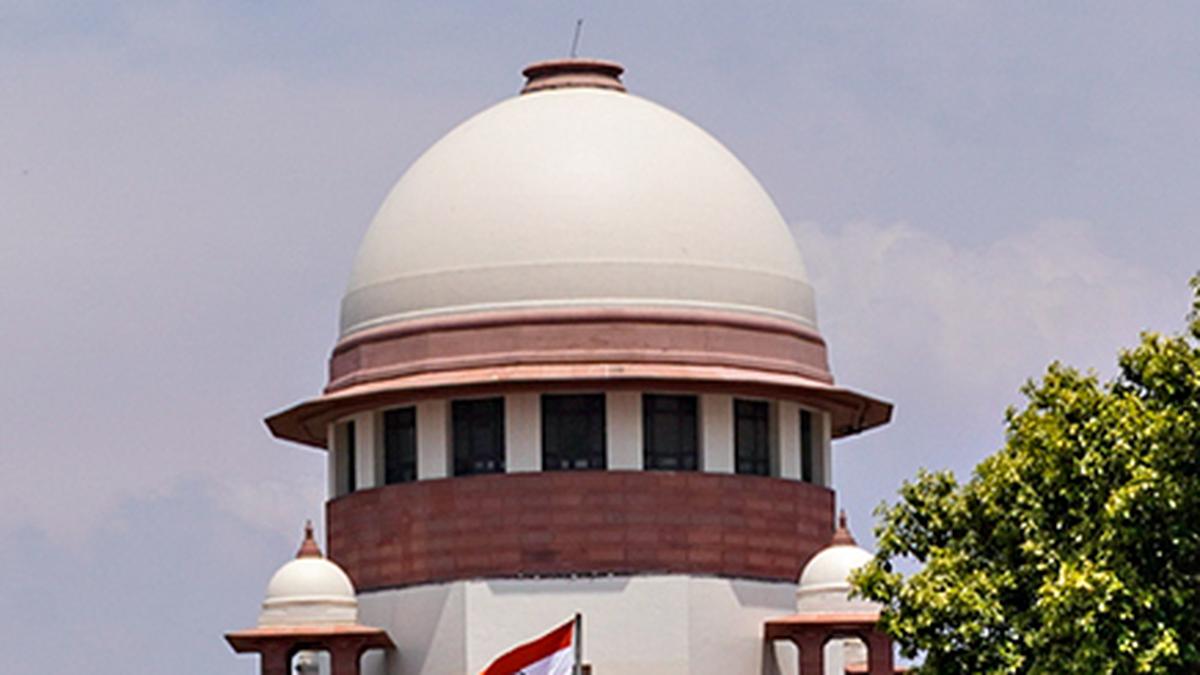
A Bench headed by Justice P.S. Narasimha has agreed to examine the legality of Section 4 of the Madhya Pradesh Lok Seva (Reservation for Scheduled Castes, Scheduled Tribes and Other Backward Classes) Amendment Act, 1994
| Photo Credit: Deepika Rajesh
The Madhya Pradesh Government has urged the Supreme Court to treat the 50% cap for reservation as “flexible”, permitted to be overlooked in “special situations”, while seeking the validation of a law which enhances quota for Other Backward Classes (OBC) from 14% to 27% in State services.
The Madhya Pradesh State law breaks the 50% reservation ceiling established by a nine-judge Constitution Bench of the Supreme Court in the Mandal Commission case 33 years ago.
The State has argued that the increase in OBC reservation was necessary to combat “entrenched social isolation and exclusion” faced by more than half its population. It said even the Supreme Court, on many occasions, had termed the 50% limit on reservation more of a “flexible guideline” than an immutable Constitutional bar.
The issue triggered by Madhya Pradesh has gathered momentum, with Chhattisgarh also moving the Supreme Court. Some of the districts in Chhattisgarh allow 85% reservation.
Madhya Pradesh contended that grinding poverty, and intergenerational marginalisation among the 94 OBC castes and sub-castes in the State form an “exceptional situation” in which the court’s 50% limit must be breached to provide welfare and equality to the deprived sections of society.
Explained | Should reservations exceed the 50% cap?
A Bench headed by Justice P.S. Narasimha has agreed to examine the legality of Section 4 of the Madhya Pradesh Lok Seva (Reservation for Scheduled Castes, Scheduled Tribes and Other Backward Classes) Amendment Act, 1994 as amended in 2019. The provision has increased the OBC quota to 27%.
The apex court took suo motu action and ordered several petitions, including the lead one filed by Shivam Gautam, represented by advocate Prathvi Raj Chauhan, pending in the Madhya Pradesh High Court, to be transferred to itself for an authoritative pronouncement. The case is listed for hearing on October 8.
The State, represented by advocate Mrinal Gopal Elker, said the prolonged litigation in the High Court over the validity of the 2019 amendment has blocked recruitments to 12 departments of the government since 2022. The court listed the case urgently for October 8.
The Government submitted that the 2011 Census in Madhya Pradesh revealed Scheduled Castes constituted 15.6%, Scheduled Tribes 21.1%, and OBC “more than 51% of the total population”.
“The disadvantaged communities collectively comprise over 87% of the State’s population. Yet, OBCs were earlier confined to only 14% reservation, which is wholly disproportionate to their demographic share and their actual educational and social backwardness. Hence, the enhancement to 27% is a constitutionally mandated corrective step,” the Madhya Pradesh government reasoned in its affidavit.
The State also referred to reports by the Madhya Pradesh Backward Classes Commission, which reaffirmed that the 94 OBC castes/sub-castes were “still engaged predominantly in traditional, menial, and agriculture-related occupations, reflecting their continuing marginalisation”.
The Mahajan Commission appointed by the Congress government in 1980 had found “severe social discrimination, including segregation in seating and food practices. Around 90% lived in kutcha houses with poor facilities… Politically, OBC representation in the Legislative Assembly remained below 16%, and communities… OBC representation was only 8.241% across all classes… Despite constituting 48.08% of the population (1981 Census), OBCs remained grossly underrepresented in education, government services, and political institutions”. The State reminded that the Mahajan Commission had recommended 35% reservation for OBC in the State, significantly higher than the 27% quota under challenge.
The State justified that recent judgments of the apex court, including in the Jaishri Lamanrao Patil case, had allowed exceptions to the 50% ceiling “upon demonstration of special circumstances”.
“Special situations might require going beyond 50%, provided the State demonstrates compelling and extraordinary circumstances. In such cases, strict scrutiny is warranted, but relaxation is Constitutionally permissible,” the State of Madhya Pradesh submitted.
Published – October 02, 2025 06:10 pm IST


